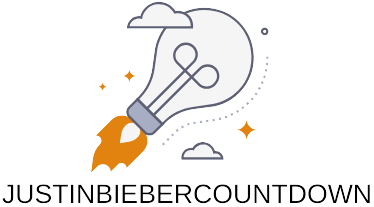Table of Contents
ToggleIn a world where stress can feel like a second job and challenges pop up like weeds in a garden, mental strength is the secret weapon everyone needs. It’s not about flexing your biceps or mastering the art of deep breathing; it’s about cultivating a mindset that can tackle life’s curveballs with grace and maybe a little humor.
Understanding Mental Strength
Mental strength refers to the ability to manage thoughts, emotions, and behaviors in the face of challenges. It allows individuals to maintain focus and resilience under pressure.
Definition of Mental Strength
Mental strength involves emotional resilience, self-discipline, and adaptability. It’s the capacity to stay calm in adversity, think positively, and embrace change. Those with mental strength demonstrate perseverance in reaching goals. They possess the ability to control reactions, overcome obstacles, and remain focused despite difficulties. Being mentally strong enables people to bounce back from failures and setbacks, ensuring they remain goal-oriented.
Importance of Mental Strength in Life
Mental strength plays a vital role in personal and professional success. It fosters a positive mindset that enhances problem-solving skills. With mental strength, individuals cope more effectively with stress and maintain healthier relationships. They tend to make better decisions and approach challenges confidently. In challenging situations, mental strength promotes resilience and adaptability, allowing individuals to thrive rather than simply survive. Cultivating this strength leads to increased overall well-being and fulfillment.
Key Components of Mental Strength


Mental strength consists of several crucial components, each contributing to an individual’s ability to navigate challenges effectively. These components include emotional regulation, resilience, and self-discipline.
Emotional Regulation
Emotional regulation involves managing feelings in high-pressure situations. Individuals who excel in emotional regulation can identify their emotions accurately. They respond to emotions without being overwhelmed, allowing for clear decision-making. This skill promotes emotional intelligence, enabling individuals to understand and empathize with others. Strategies such as mindfulness or deep breathing exercises enhance emotional regulation. Practicing these techniques consistently leads to better stress management and improved relationships.
Resilience
Resilience refers to the capacity to recover from setbacks quickly. Resilient individuals view challenges as opportunities for growth rather than obstacles. They maintain optimism even during difficult times, which strengthens their ability to cope. Learning from failures and embracing change are key aspects of resilience. Engaging in problem-solving activities also boosts resilience by reinforcing a proactive mindset. This mindset encourages individuals to remain focused and persistent when pursuing goals.
Self-Discipline
Self-discipline is the ability to stay committed despite distractions or temptations. It involves setting clear goals and adhering to a structured plan. Individuals with strong self-discipline can delay gratification, enabling them to make decisions that align with long-term objectives. This trait enhances productivity and fosters a sense of accomplishment. Techniques such as goal-setting and time management support the development of self-discipline. Consistency in practice leads to lasting habits that promote success.
Building Mental Strength
Developing mental strength requires intentional actions and consistent effort. Individuals can adopt specific strategies that foster resilience and emotional regulation.
Strategies for Developing Mental Toughness
Engaging in self-reflection enhances self-awareness and assists in recognizing personal triggers. Setting clear goals provides direction and motivation, allowing individuals to measure progress. Practicing visualization creates a mental image of success, reinforcing belief in abilities. Seeking feedback offers different perspectives, promoting growth in skills and mindset. Cultivating a supportive network encourages sharing challenges and receiving encouragement. Embracing failure as a learning opportunity builds resilience and prepares individuals for future adversity. Techniques for stress management, such as deep breathing or meditation, improve emotional regulation, equipping individuals to handle pressures effectively.
Daily Practices to Enhance Mental Strength
Incorporating mindfulness into daily routines fosters present-moment awareness and reduces anxiety. Developing a consistent exercise regimen boosts physical health and positive mental state. Journaling thoughts and feelings promotes clarity and emotional processing. Maintaining a balanced diet supports cognitive function, enhancing mood and focus. Establishing a structured daily routine cultivates discipline and a sense of normalcy. Prioritizing rest and sleep allows the mind to recharge, improving overall coping skills. Celebrating small victories reinforces motivation and demonstrates progress on the journey to mental strength.
Challenges to Mental Strength
Challenges to mental strength arise from various sources, impacting an individual’s ability to maintain resilience. Recognizing these obstacles is essential for growth and development.
Common Obstacles
Fear often hinders progress, creating a cycle of avoidance. Self-doubt affects confidence, leading to inaction on goals. External pressures, such as societal expectations or family demands, can overwhelm individuals, causing stress and anxiety. Negative influences from peers may further diminish mental strength, instilling a mindset focused on limitations rather than possibilities. Time constraints limit opportunities for self-care and reflection. These common obstacles create significant barriers, making it critical to address them effectively.
Overcoming Negative Thoughts
Addressing negative thoughts requires intentional practice and positive mindset shifts. Challenging unhelpful beliefs plays a key role in building mental resilience. Cognitive restructuring techniques can replace pessimistic viewpoints with a more balanced perspective. Practicing gratitude fosters appreciation for life, encouraging a focus on positive aspects. Journaling provides an outlet for expressing emotions, allowing individuals to confront and process their thoughts. They can also visualize success, reinforcing belief in their capabilities. Maintaining supportive relationships enables constructive conversations, helping to counteract negativity. These strategies pave the way for overcoming negative thoughts and enhancing overall mental strength.







